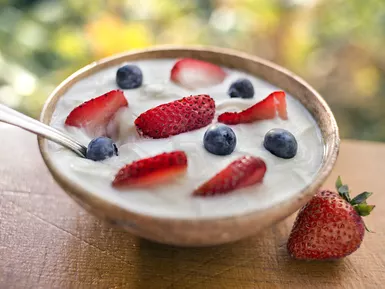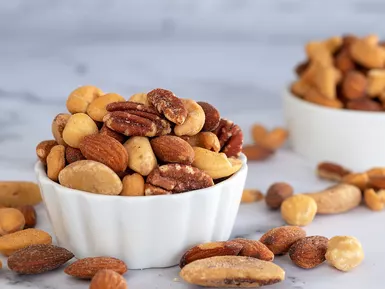Is the Dr. Now Diet Right for You? A Guide to Sustainable Weight Loss

Is the Dr. Now Diet Right for You? A Guide to Sustainable Weight Loss
In the quest for effective weight loss, many individuals turn to popular diets and weight loss programs. One such approach that has gained attention is the Dr. Now diet, named after Dr. Nowzaradan, a well-known bariatric surgeon. While the Dr. Now diet has helped some people achieve significant weight loss, it's important to understand that it may not be suitable for everyone. In this blog post, we will explore the key aspects of the Dr. Now diet, its potential benefits and drawbacks, and provide you with valuable insights to help you make an informed decision about your weight loss journey.
Understanding the Dr. Now Diet
The Dr. Now diet is a low-calorie, high-protein diet that emphasizes portion control and the consumption of whole, unprocessed foods. It typically involves a strict meal plan that includes lean proteins, vegetables, fruits, and healthy fats, while limiting the intake of carbohydrates, sugars, and processed foods. The diet also requires individuals to drink plenty of water and engage in regular physical activity.
One of the key principles of the Dr. Now diet is calorie restriction. By consuming fewer calories than your body burns, you create a calorie deficit, which leads to weight loss. The diet aims to provide your body with the necessary nutrients while keeping calorie intake low to promote fat loss. Additionally, the high-protein content of the diet helps to preserve muscle mass and keep you feeling full and satisfied.
Potential Benefits of the Dr. Now Diet
- Weight Loss: The Dr. Now diet can be an effective approach for weight loss, especially for individuals with a significant amount of weight to lose. By following a strict meal plan and reducing calorie intake, many people have been able to achieve substantial weight loss in a relatively short period of time.
- Improved Health: Losing weight through the Dr. Now diet can have numerous health benefits, including reduced risk of chronic diseases such as diabetes, heart disease, and certain types of cancer. It can also improve blood pressure, cholesterol levels, and insulin sensitivity.
- Portion Control: The emphasis on portion control in the Dr. Now diet can help individuals develop a better understanding of appropriate serving sizes and learn to control their food intake. This can be particularly beneficial for those who struggle with overeating or have a tendency to consume large portions.
- Increased Energy: By consuming a balanced diet that includes plenty of fruits, vegetables, and lean proteins, individuals on the Dr. Now diet may experience increased energy levels and improved overall well-being.
Drawbacks of the Dr. Now Diet
- Restrictive Nature: The Dr. Now diet is a highly restrictive diet that may be difficult for some individuals to follow long-term. It requires strict adherence to a specific meal plan and limits the intake of certain foods, which can be challenging for those with food preferences or dietary restrictions.
- Nutritional Deficiencies: Due to the limited food choices and calorie restriction, there is a risk of developing nutritional deficiencies on the Dr. Now diet. It's important to ensure that you are getting all the necessary nutrients, including vitamins, minerals, and essential fatty acids, to support your overall health and well-being.
- Social and Psychological Challenges: Following a strict diet can be socially isolating and may lead to feelings of deprivation and frustration. It's important to consider the impact of the diet on your social life and mental health and to find ways to cope with these challenges.
- Unsustainable Long-Term: While the Dr. Now diet can be effective for short-term weight loss, it may not be sustainable in the long term. Many people who follow restrictive diets tend to regain the weight once they stop following the diet. It's important to develop healthy eating habits and lifestyle changes that can be maintained over time to achieve long-term weight loss and overall health.
Is the Dr. Now Diet Right for You?
The suitability of the Dr. Now diet depends on various factors, including your individual health goals, dietary preferences, and lifestyle. Before starting any new diet or weight loss program, it's important to consult with a healthcare professional or a registered dietitian who can assess your specific needs and provide personalized advice and guidance.
If you have a significant amount of weight to lose and are willing to commit to a strict meal plan and lifestyle changes, the Dr. Now diet may be a suitable option for you. However, if you have any underlying health conditions, such as diabetes, kidney disease, or eating disorders, it's important to discuss the diet with your healthcare provider before starting.
Alternatives to the Dr. Now Diet
If the Dr. Now diet doesn't seem like the right fit for you, there are many other healthy and sustainable weight loss approaches available. Here are some alternatives to consider:
- Balanced Diet: A balanced diet that includes a variety of fruits, vegetables, whole grains, lean proteins, and healthy fats is essential for overall health and weight management. Focus on consuming nutrient-dense foods and limit the intake of processed foods, sugars, and unhealthy fats.
- Portion Control: Pay attention to portion sizes and practice mindful eating. Use smaller plates, bowls, and utensils to help control portion sizes and avoid overeating.
- Regular Physical Activity: Engage in regular physical activity to burn calories, increase metabolism, and improve overall fitness. Aim for at least 150 minutes of moderate-intensity aerobic activity, such as brisk walking, cycling, or swimming, per week, along with strength training exercises at least twice a week.
- Behavior Modification: Make lifestyle changes that support weight loss, such as getting enough sleep, managing stress, and avoiding emotional eating. Develop healthy habits and coping mechanisms to help you stay on track with your weight loss goals.
- Professional Support: Consider working with a registered dietitian, personal trainer, or weight loss coach who can provide personalized guidance, support, and accountability to help you achieve your weight loss goals.
Tips for Successful Weight Loss
- Set Realistic Goals: Set realistic and achievable weight loss goals that are specific, measurable, achievable, relevant, and time-bound (SMART). Aim for a gradual weight loss of 1-2 pounds per week, which is considered a healthy and sustainable rate of weight loss.
- Track Your Progress: Keep a food diary or use a mobile app to track your food intake, physical activity, and weight loss progress. This can help you stay accountable and make adjustments to your diet and exercise routine as needed.
- Stay Hydrated: Drink plenty of water throughout the day to stay hydrated and help flush out toxins from your body. Water can also help you feel full and satisfied, which can reduce your overall calorie intake.
- Get Enough Sleep: Aim for 7-8 hours of quality sleep per night. Lack of sleep can disrupt your hormones and increase your appetite, making it more difficult to lose weight.
- Manage Stress: Find healthy ways to manage stress, such as meditation, yoga, deep breathing exercises, or engaging in activities that you enjoy. Stress can lead to emotional eating and weight gain, so it's important to find ways to cope with stress in a healthy manner.
- Seek Support: Surround yourself with supportive friends, family, or a weight loss community who can provide encouragement, motivation, and accountability. Consider joining a weight loss support group or working with a personal trainer or registered dietitian who can provide personalized guidance and support.
Conclusion
The Dr. Now diet can be an effective approach for weight loss, but it's not suitable for everyone. It's important to understand the potential benefits and drawbacks of the diet and to consider your individual health goals, dietary preferences, and lifestyle before starting any new diet or weight loss program. Remember, sustainable weight loss is a journey that requires patience, commitment, and a balanced approach to diet and exercise. By making healthy lifestyle changes and seeking professional support when needed, you can achieve your weight loss goals and improve your overall health and well-being.
FAQ
Q: Can I eat carbohydrates on the Dr. Now diet?
A: The Dr. Now diet typically restricts the intake of carbohydrates, especially refined carbohydrates and sugars. However, it's important to include some complex carbohydrates, such as whole grains, fruits, and vegetables, in your diet to provide your body with the necessary energy and nutrients.
Q: How much weight can I expect to lose on the Dr. Now diet?
A: The amount of weight you can expect to lose on the Dr. Now diet depends on various factors, including your starting weight, body composition, age, gender, and activity level. Generally, individuals on the Dr. Now diet can expect to lose 1-2 pounds per week, which is considered a healthy and sustainable rate of weight loss.
Q: Can I exercise while on the Dr. Now diet?
A: Yes, it's important to engage in regular physical activity while on the Dr. Now diet to support weight loss and improve overall health. Aim for at least 150 minutes of moderate-intensity aerobic activity, such as brisk walking, cycling, or swimming, per week, along with strength training exercises at least twice a week.
Q: Is the Dr. Now diet safe?
A: The Dr. Now diet can be safe for most individuals when followed under the supervision of a healthcare professional or a registered dietitian. However, it's important to ensure that you are getting all the necessary nutrients and to monitor your health and well-being while on the diet. If you have any underlying health conditions, such as diabetes, kidney disease, or eating disorders, it's important to discuss the diet with your healthcare provider before starting.
Q: Can I drink alcohol on the Dr. Now diet?
A: The Dr. Now diet typically restricts the intake of alcohol, as it is high in calories and can contribute to weight gain. It's important to limit your alcohol consumption or avoid it altogether while on the diet to support your weight loss goals.
Call to Action
If you're considering the Dr. Now diet or any other weight loss program, we encourage you to consult with a healthcare professional or a registered dietitian who can provide personalized advice and guidance based on your individual needs and health goals. Remember, sustainable weight loss is a journey that requires patience, commitment, and a balanced approach to diet and exercise. Take the first step towards a healthier you today by making a small, positive change in your diet or lifestyle. For example, try swapping out your usual sugary drink for a glass of water or unsweetened tea, or take a 10-minute walk after dinner. These small changes can add up over time and help you achieve your weight loss goals.

5 Transformative Weight-Loss Resolutions for Success

Workout Routines & Beyond: Science-Based Weight Loss

Vitamin E and Weight Loss: Unveiling the Truth

Effective Strategies to Lose Midriff Fat for Women

8 Non-Scale Victories in Your Weight-Loss Journey

Unveiling the Ornish Diet: A Path to Sustainable Weight Loss

The Power of Social Support in Weight Loss

Personalized Weight Loss: 4 Strategies for Success

Long - Term Weight Loss: Maintaining Healthy Habits

